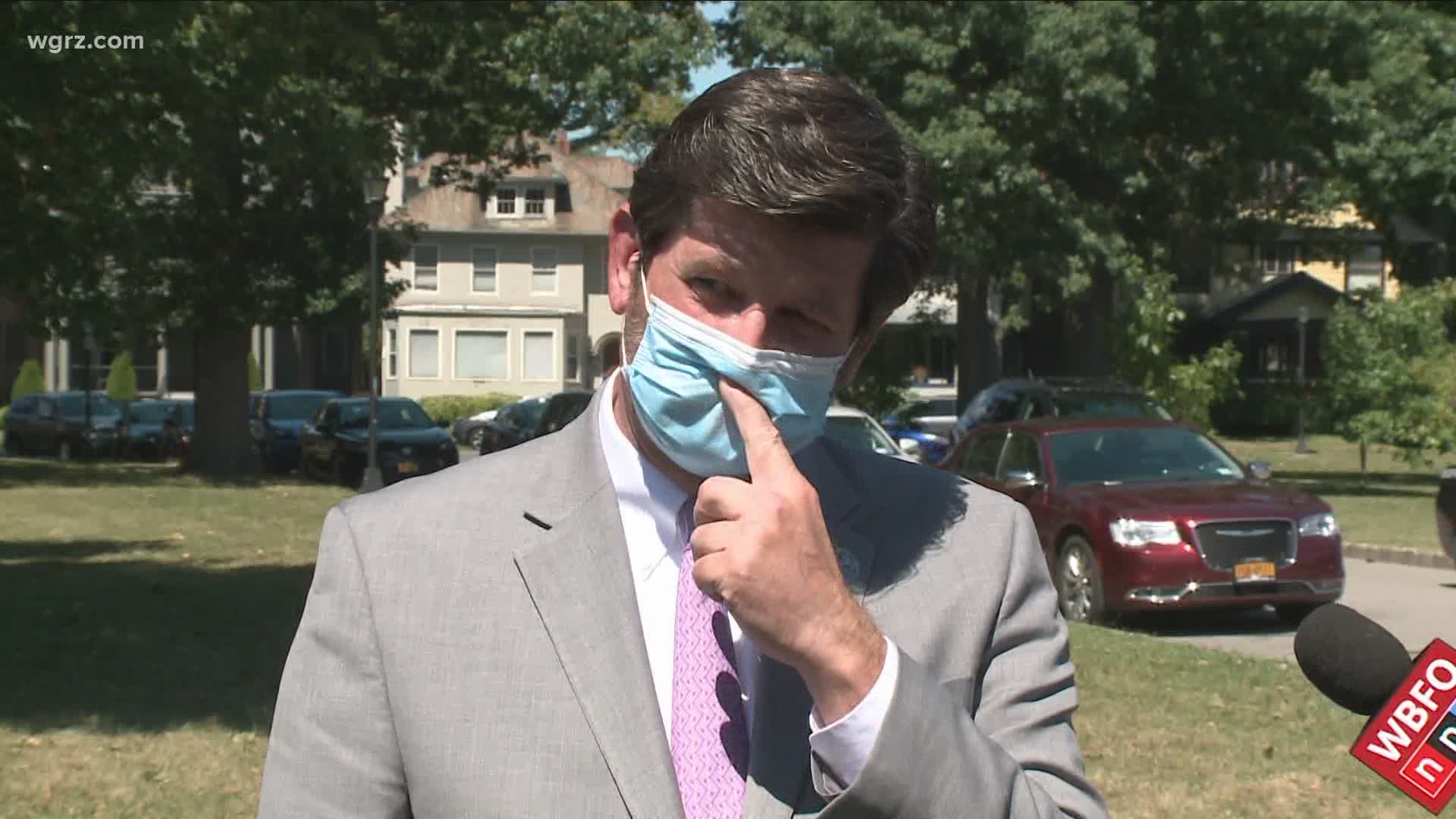Erie County is looking to fill jobs to help in the ongoing battle against the coronavirus.
The county's Health Department is looking to hire contact tracers and public health sanitarians.
Two part-time and six full-time positions for investigating public health sanitarians are available in the Division of Environmental Health. Responsibilities include inspecting permitted facilities, septic/water systems for compliance with sanitary code and other local, state and federal regulations. Sanitarians also inspect for lead hazards.
The Office of Epidemiology is looking for contact tracers, assistant supervisors and supervisors. Contact tracers are responsible for calling close contacts of those diagnosed with COVID-19 to let them know they may have been exposed to the virus and provide information on isolation and quarantine. Excellent communication and organizational skills are preferred as well as proficiency with computer use, the ability to maintain confidentiality and completion of the John Hopkins Contact Tracing Program.
“Each of these positions is tied in to core functions of our COVID-19 response,” said Commissioner of Health Dr. Gale Burstein. “We are seeking to build our capacity for contact tracing and enforcement of public health and safety regulations related to COVID-19 this fall.”
Information on these jobs, including how to apply and other openings within the Health Department can be found here.
Human coronaviruses are usually spread through...
- The air by coughing or sneezing
- Close personal contact, such as touching or shaking hands
- Touching an object or surface with the virus on it, then touching your mouth, nose or eyes before washing your hands.
Help stop the spread of coronavirus
- Stay home when you are sick.
- Eat and sleep separately from your family members
- Use different utensils and dishes
- Cover your cough or sneeze with your arm, hot your hand.
- If you use a tissue, throw it in the trash.
Lower your risk
- Wash your hands often with soap and water for at least 20 seconds. If soap and water are not available, use an alcohol-based hand sanitizer.
- Avoid touching your eyes, nose, and mouth with unwashed hands.
- Avoid close contact with people who are sick.
- Clean and disinfect frequently touched objects and surfaces.
- If you are 60 or over and have an underlying health condition such as cardiovascular disease, diabetes or respiratory illnesses like asthma or COPD, the World Health Organization advises you to try to avoid crowds or places where you might interact with people who are sick.

